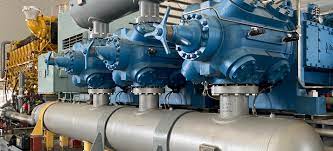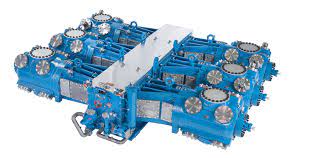Gas compressors play a pivotal role in various industries, ensuring the efficient transportation and utilization of gases. In this article, we’ll delve into the realm of gas compressors, exploring their different types, sizes, and functions. Whether you’re a novice or an industry expert, this guide will provide valuable insights into this critical equipment.
Understanding Gas Compressors
Gas compressors are mechanical devices designed to increase the pressure of gases by reducing their volume. They find applications in a wide range of industries, from manufacturing to energy production. Let’s take a closer look at the world of gas compressors.
Types of Gas Compressors
Gas compressors come in various types, each suited to specific applications. Understanding these types is crucial for selecting the right compressor for your needs.
Reciprocating Compressors
Reciprocating compressors use pistons to compress gases. They are ideal for high-pressure applications and offer excellent efficiency.
Rotary Screw Compressors
Rotary screw compressors use helical screws to compress gases continuously. They are known for their reliability and are commonly used in industrial settings.
Centrifugal Compressors
Centrifugal compressors employ a rotating impeller to accelerate and compress gases. They are ideal for applications requiring high flow rates.
Diaphragm Compressors
Diaphragm compressors use flexible diaphragms to compress gases. They are widely used in the pharmaceutical and food industries for their contamination-free operation.
Choosing the Right Size
Selecting the appropriate compressor size is essential for optimizing performance and energy efficiency. Factors like gas volume and pressure requirements determine the size you need.

Functions of Gas Compressors
Gas compressors serve various functions across industries. Let’s explore some of their primary roles:
Gas Transmission
Gas compressors play a crucial role in transporting natural gas over long distances. They boost gas pressure to ensure it reaches its destination efficiently.
Chemical Processing
In chemical industries, gas compressors are used to compress and transport various gases for reactions and product manufacturing.
Refrigeration
Gas compressors are vital components in refrigeration systems, where they compress refrigerant gases to remove heat from the environment.
Oil and Gas Production
Gas compressors are integral in the oil and gas industry for tasks like gas injection, vapor recovery, and gas lifting.
Power Generation
Power plants often rely on gas compressors to supply compressed air for combustion, ensuring efficient electricity generation.
Industrial Applications
Various manufacturing processes require compressed air for tools and machinery, making gas compressors essential in industrial settings.
Conclusion
In conclusion, gas compressors are indispensable in various industries, ensuring the efficient handling and transportation of gases. Understanding the different types, sizes, and functions of gas compressors is crucial for making informed decisions in industrial and commercial applications. Whether you’re working with natural gas, chemicals, or refrigerants, the right gas compressor can significantly impact efficiency and productivity.
FAQs (Frequently Asked Questions)
How does a gas compressor work?
Gas compressors work by reducing the volume of gas, which simultaneously increases its pressure. This is achieved through various mechanisms, such as pistons, screws, impellers, or diaphragms, depending on the compressor type.
What are the advantages of centrifugal compressors?
Centrifugal compressors are favored for their high flow rates and low maintenance requirements. They are also known for their ability to handle large volumes of gas efficiently.
Are gas compressors energy-efficient?
Gas compressors can be energy-efficient when properly sized and maintained. Regular maintenance and the use of efficient compressor types contribute to energy savings.
Can gas compressors handle different types of gases?
The suitability of a gas compressor for specific gases depends on factors like gas composition, temperature, and pressure. It’s essential to select a compressor compatible with the gas you intend to compress.
Are there portable gas compressors available?
Yes, portable gas compressors are available for applications that require mobility. These compressors are often used in construction and remote industrial sites.
What is the lifespan of a gas compressor?
The lifespan of a gas compressor varies depending on factors like usage, maintenance, and operating conditions. Well-maintained compressors can last for several decades.
